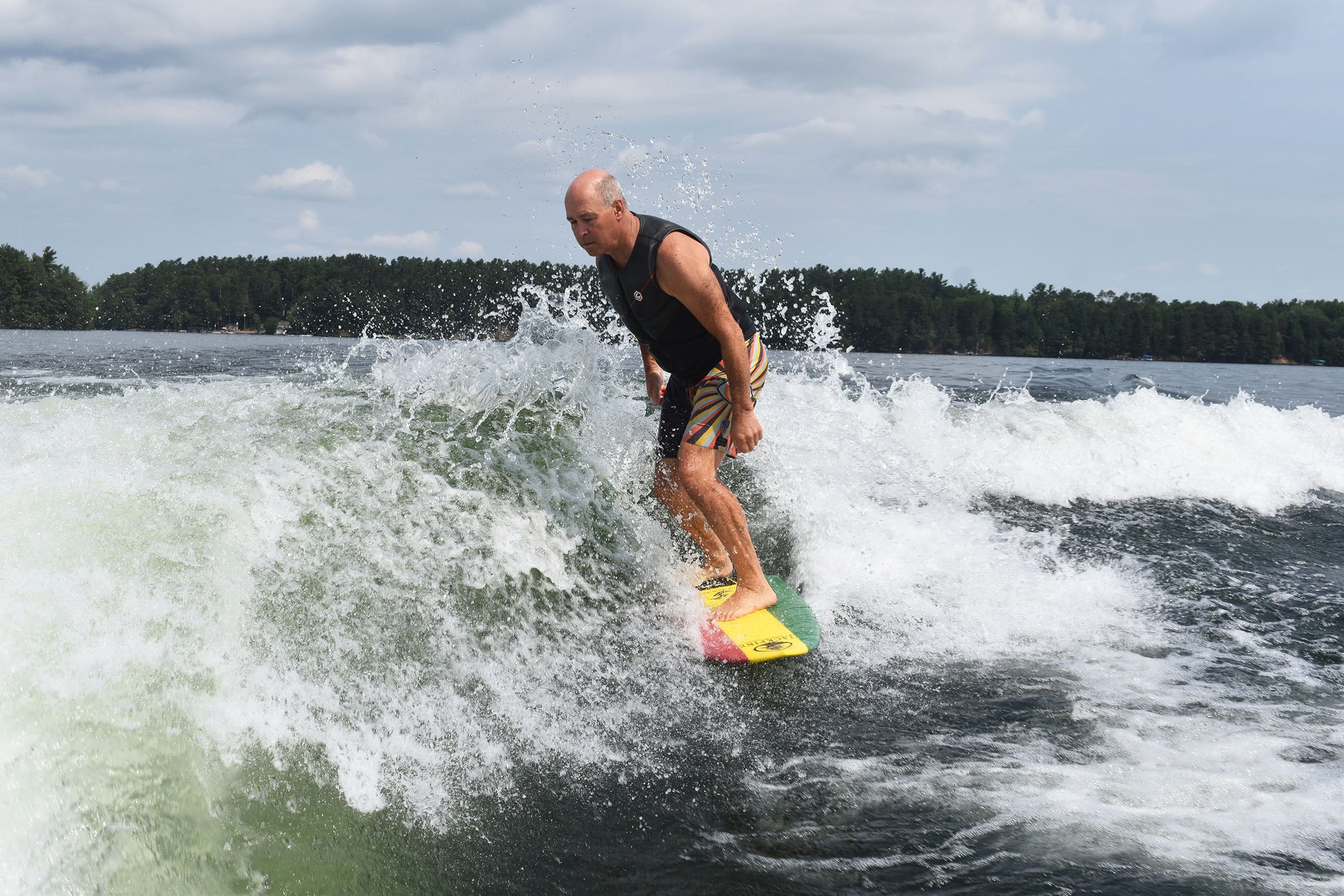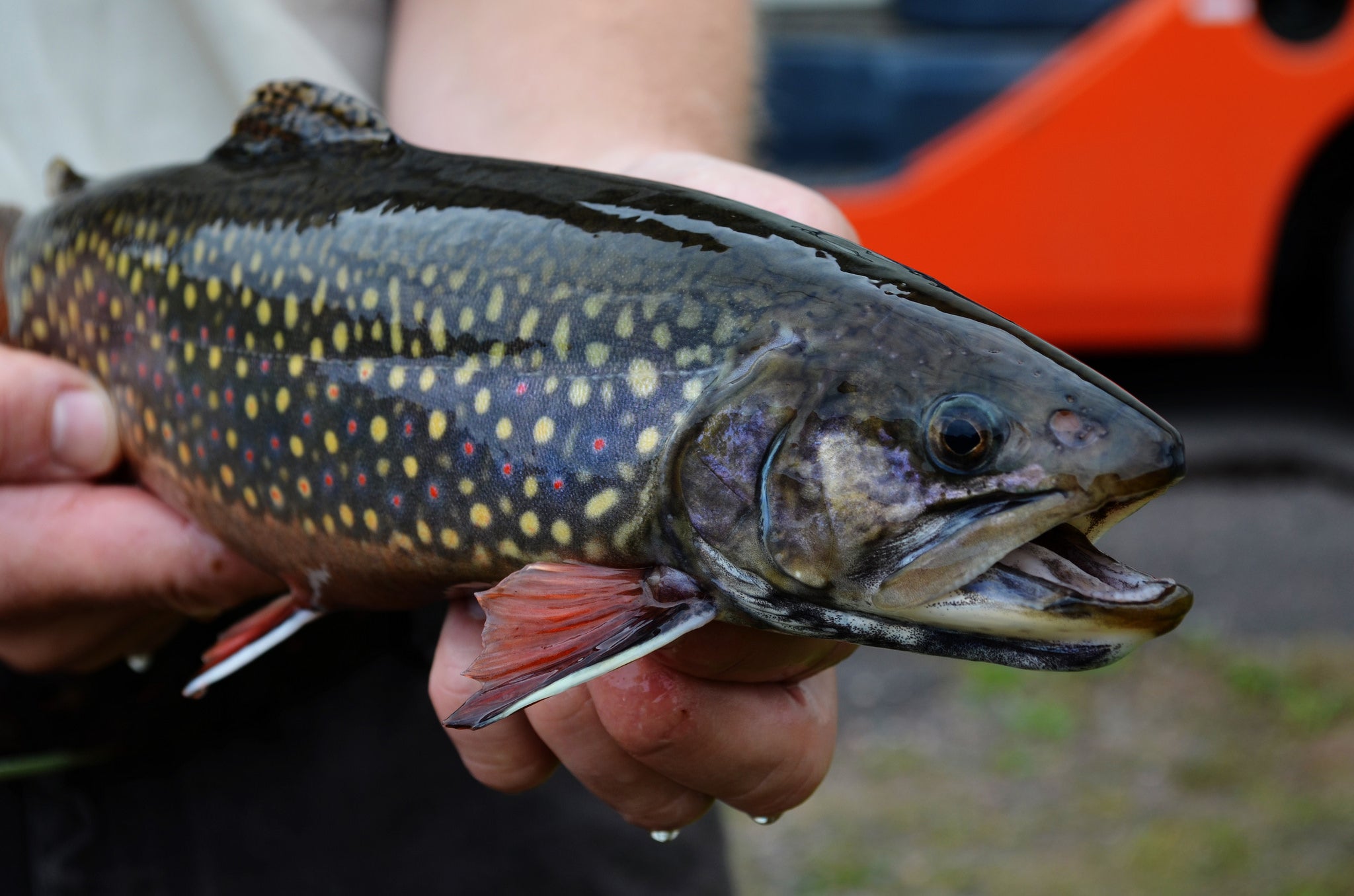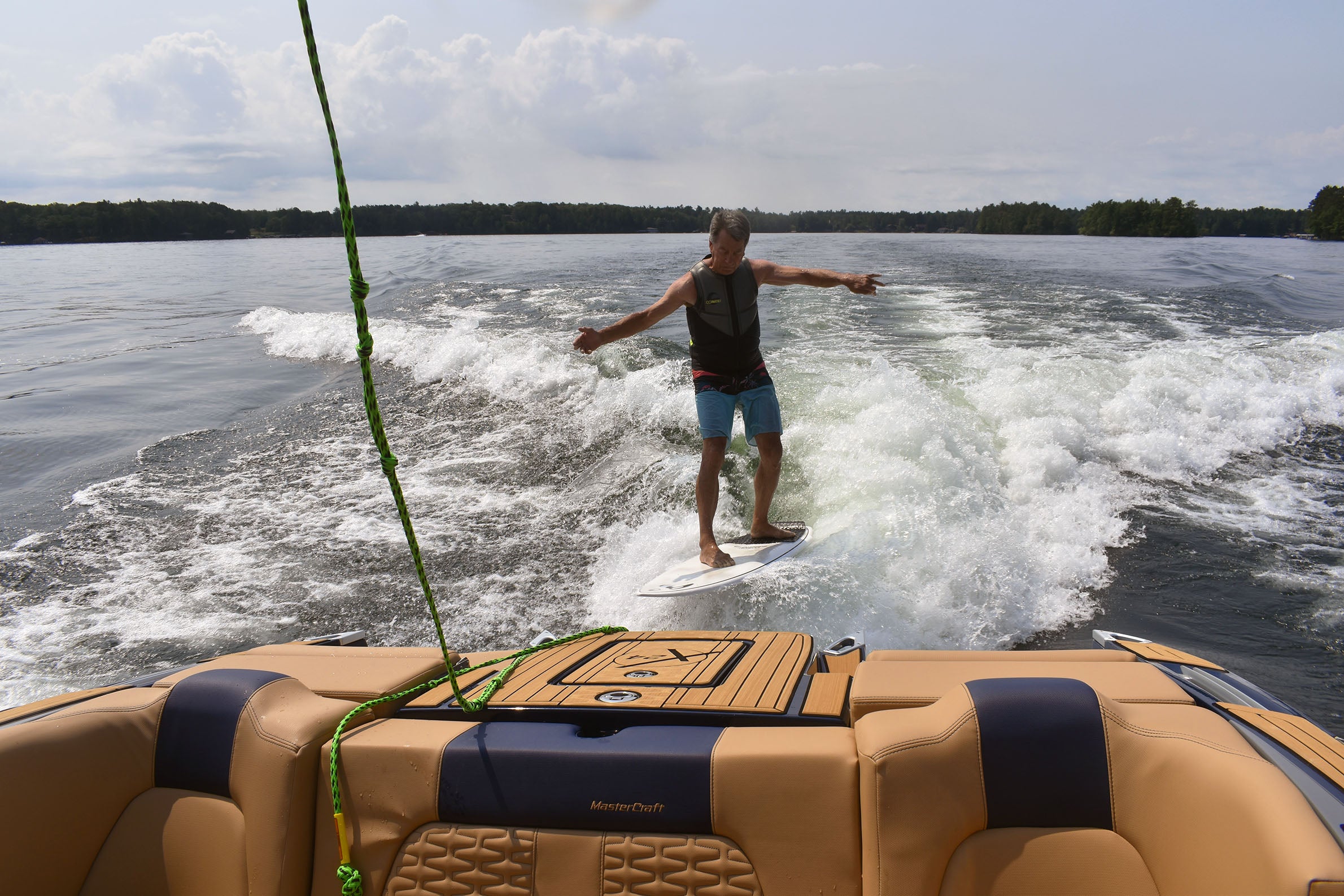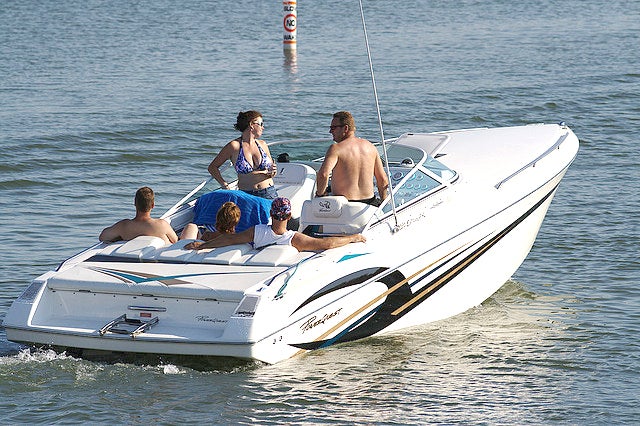A lawsuit against a small northern Wisconsin town seeks to overturn a local ban on wake surfing, saying the regulation is illegal and unconstitutional. The lawsuit is believed to be the first such legal challenge to local control of wake boats in Wisconsin.
Texas resident Chad M. McEver, Florida resident Scott Oppenheimer and the Peggy Oppenheimer Living Trust are suing the town of Scott in Burnett County over its ordinance that restricts operation of wake boats on four lakes. The town passed the ordinance last November.
Although the people suing live out-of-state, they own or use lakefront property on Birch Island Lake within the town.
Stay connected to Wisconsin news — your way
Get trustworthy reporting and unique local stories from WPR delivered directly to your inbox.
The large boats are designed to magnify a boat’s wake through ballast tanks or other features, creating big waves for people to surf. But a growing number of communities have passed local regulations to restrict use of wake boats. Concerns are mounting over their effects on transfer of invasive species, shoreline erosion, fish habitat and the safety of other lake users.
Attorneys for the plaintiffs, who are both wake boat owners, say the ordinance violates their constitutional rights to due process and rights under the Public Trust Doctrine.
“This Town and others have had repeated opportunities to accommodate all lake users, but with these bans, which are the most extreme in the country, towns have shown they cannot be trusted to act reasonably and compromise,” Attorney Anders Helquist said in a statement.
“Our lawsuit became necessary to protect our clients’ rights to legally recreate on a nearly 800-acre lake that has had zero issues with wake surfing,” Helquist stated.
Helquist said a “reckoning” is coming for towns that have passed bans, saying they plan to challenge all ordinances statewide.
Attorneys are asking a judge to rule in the plaintiffs’ favor and bar the town from enforcing its ordinance. They’re also requesting attorneys fees and at least $190,157 in damages, which they say is equal to the value of their boats that can no longer be used as intended.
The lawsuit comes as 53 communities have passed local ordinances to regulate wake surfing on about 300 lakes, according to the Last Wilderness Alliance.
Town of Scott Chair Scott Barton said most of its nearly 600 residents are concerned the boats will introduce invasive species and damage lakes by stirring up nutrients that contribute to algae blooms, as well as harm fish habitat.
“We just want to preserve our lakes so that the fish are here for a long time, that [people] can recreate for a long time,” Barton said. “We don’t want the algae blooms, and we don’t want to destroy the lakes.”
He said wake boat owners can still use their boats on the lakes as long as they’re not creating large waves.
Wisconsin law currently allows the boats to operate 100 feet from the shoreline. Research by the University of Minnesota has found wake boats produce larger and more forceful waves than other boats that require them to be more than 500 feet from shore for wake surfing. A study funded by the boating industry maintains that 200 feet is enough distance to reduce impacts.
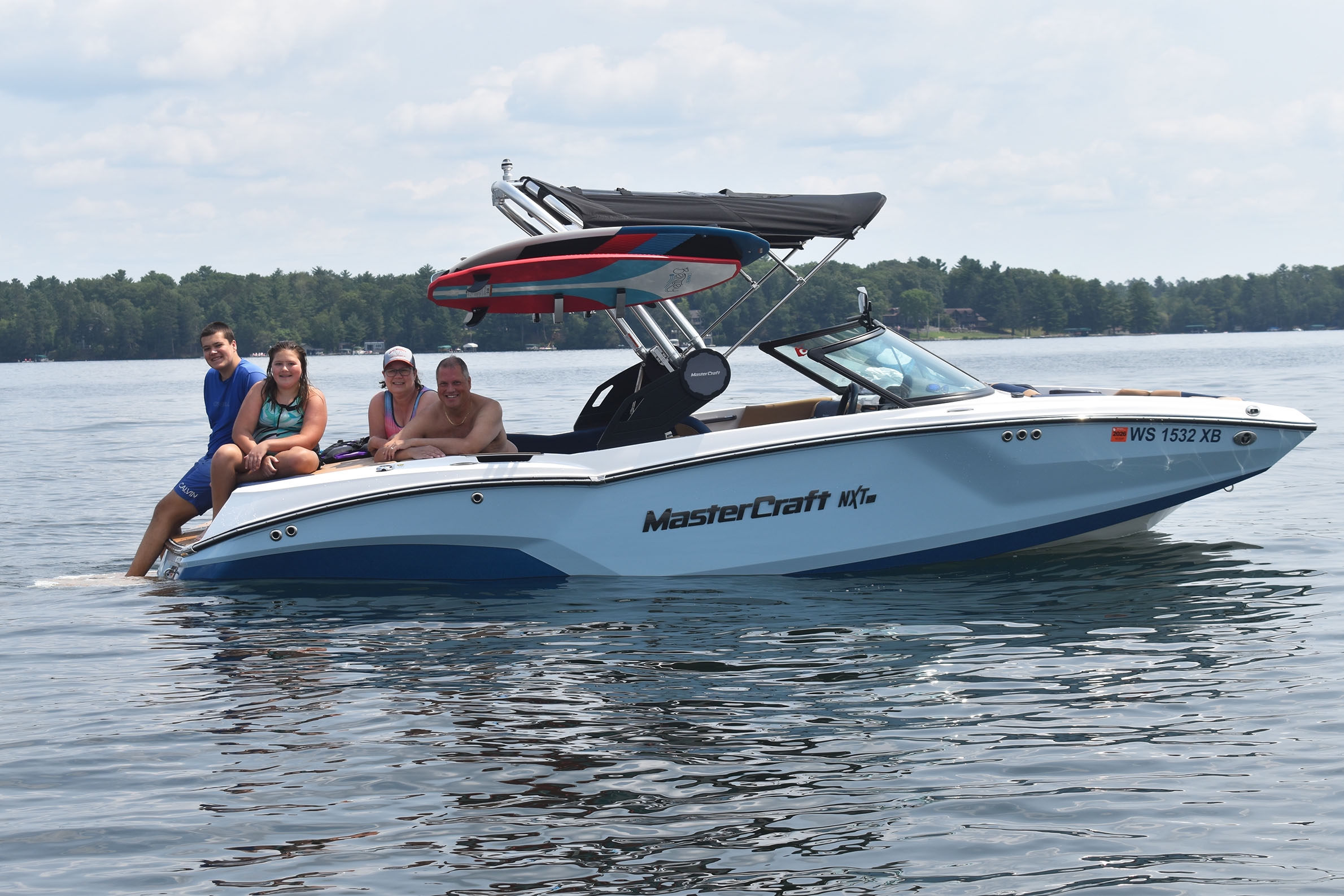
Towns are passing ordinances due to absence of state regulation
Presque Island resident Richard Phillips with Last Wilderness Alliance told the Natural Resources Board on Wednesday that towns are regulating wake surfing because they’re pessimistic that the Wisconsin Legislature will act.
“As it becomes increasingly apparent the state will do nothing, citizens groups will lobby for local ordinances. To counter this, there are [and] will continue to be increasing threats from the industry, and wake surf boat owners will sue,” Phillips said, highlighting the May 16 lawsuit against the town.
Attorneys argue the town exceeded its authority with the ordinance because it lacks specific findings that justify the boating restrictions, specifically on Birch Island Lake.
While Birch Island Lake spans 768 acres, Phillips and Barton noted it’s very shallow. The lake has a maximum depth of 13 feet. A 2021 study of a lake in Waukesha County found the jet of water created by the boats during wake surfing extends 20 feet or more below the lake’s surface.
Attorneys for McEver and Oppenheimer argue the ordinance is vague and encourages discriminatory enforcement against them. They have also sued to inspect records of communications about wake surfing among town board members. The lawsuit also states the Wisconsin Department of Natural Resources reviewed the ordinance and found it would be “difficult to enforce.”
The DNR did not immediately return a request for its review or comment on the agency’s findings.
Barton said the state should regulate wake boats rather than towns, saying lawmakers need to get involved.
In 2023, Senate President Mary Felzkowski, R-Tomahawk, introduced a bill supported by the boating industry that would’ve prevented wake surfing within 200 feet of the shore, but it failed to advance. In a statement, a spokesperson for Felzkowski said a recent meeting in Madison brought stakeholders together on all sides of the issue.
“It was a good initial conversation, and many ideas were discussed in an effort find a compromise. The conversations on this issue will continue as there is no initial general consensus. Senator Felzkowski will continue to be a strong voice fighting for local control on this issue,” the spokesperson wrote.
State Rep. Andrew Hysell, D-Sun Prairie, said in a statement that the meeting excluded Democrats and other groups from the conversation.
“I am aware of no Tribal Nations or environmental or conservation groups being included in the meeting,” Hysell said. “When considering legislation
that would impact our state’s lakes and preempt local control, all stakeholders should be at the table.”
Wisconsin Public Radio, © Copyright 2025, Board of Regents of the University of Wisconsin System and Wisconsin Educational Communications Board.
